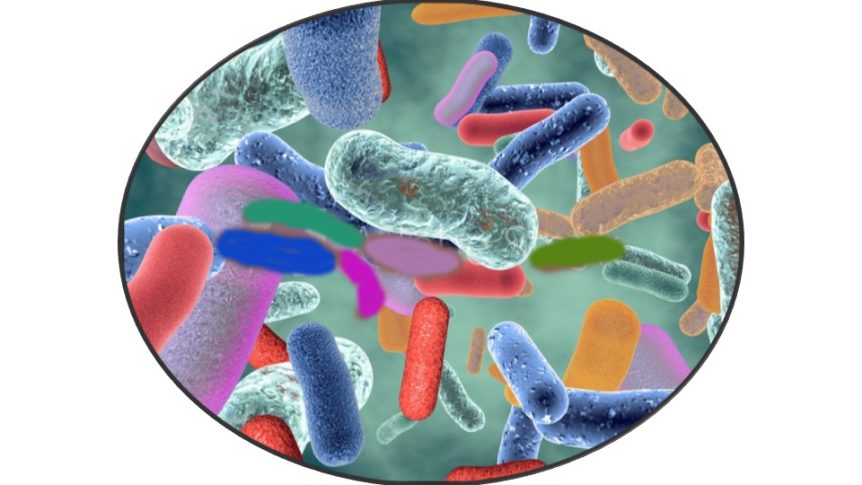As the feasting holidays surround us, we are assailed by many gustatory options for our gut microbes to feed upon.
Since I've celebrated these feasts, with various types of cuisines, including strict vegan or vegetarian holiday meals, I want to describe what types of foods create a particular blend of microbes in our guts. This summary is based on a recent article published in "Frontiers in Nutrition." You can find the entire article by clicking on the images on the left. It is titled:"The Effects of Vegetarian and Vegan Diets on Gut Microbiota"
Here are the salient points from this article for you to digest, today!
• The human microbiota is the total of all microbial taxa associated with human beings (bacteria, viruses, fungi, protozoa, archaea). It is estimated that 3 trillion microbes exist in a single human being!
• The diversity among the microbiomes of two different individuals is vast compared to their human genomic variation; humans are about 99.9% identical to each other in terms of their genome, but their gut microbiome can be up to 80–90% different.
• A plant-based diet appears to be beneficial for human health by promoting the development of more diverse and stable microbial systems.
• Vegans and vegetarians have significantly higher counts of certain Bacteroidetes-related microbes versus omnivores.
• Fibers (carbohydrates, found only in plants) consistently increase lactic acid bacteria, such as Ruminococcus, E. rectale, and Roseburia. And fibers reduce Clostridium and Enterococcus species.
• Polyphenols are abundant in plant foods, and they increase Bifidobacterium and Lactobacillus. These microbes are anti-pathogenic and anti-inflammatory. The also protect our hearts.
High fiber grows microbes that can ferment the fiber into short-chain fatty acids (SCFAs). This includes acetate, propionate, and butyrate (see video below).
• SCFAs have many positive health effects, including improved immunity against pathogens, blood–brain barrier integrity, provision of energy substrates, and regulation of critical functions of the intestine.
• A vegetarian/vegan diet is effective in promoting a diverse ecosystem of beneficial bacteria to support both human gut microbiome and overall health.
• The human gut microbiota has functions that relate to immunity, the gastrointestinal tract, the brain, and our cardiovascular systems.
• The human gut microbiota has a profound effect on host cells and genes.
• This extensive interaction has suggested that the microbiome functions effectively as a separate “organ.”
• An imbalance of the gut microbiota is linked to reflux, peptic ulcers, irritable bowel syndrome, non-alcoholic steatohepatitis. And linked to inflammatory bowel disease, obesity, atherosclerosis, type 2 diabetes, cancer, Alzheimer's and Parkinson's disease, amyotrophic lateral sclerosis, autism spectrum disorder, atopy etc.,
Most of you know that a plant-based diet is beneficial for human health.
But the reasons are thoroughly investigated by microbiologists. So far, we know that a more diverse gut microbial system is healthier for us, and this happens with a more plant-based diet. Even if you are an omnivore, just replacing meat with a vegetarian option more frequently can be helpful in diversifying your gut microflora. And this can go a long way in improving your over all health.
Enjoy this video, that names some of the microbes that are found in a healthy, diversified, human gut.










